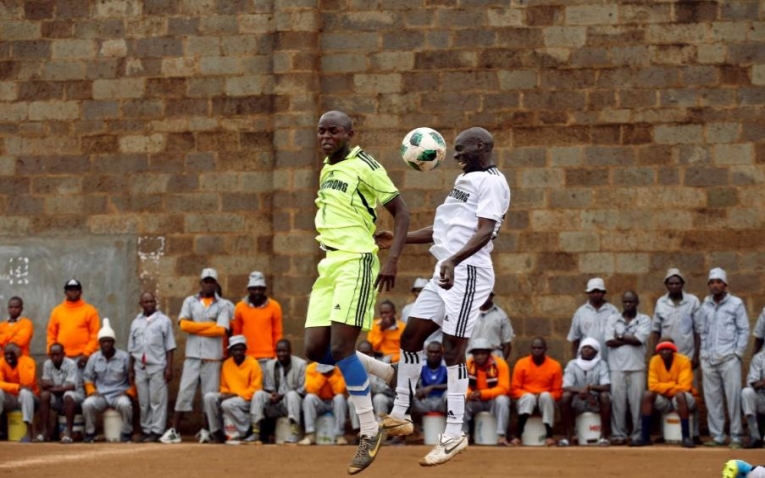Every festive season, inmates get a rare treat from family members or different organisations which either pay them a visit them with goodies or some other form of entertainment.
However, the run-up to the festive season can be very difficult mentally for prisoners – coming to terms with the fact that there’s a 50 per cent chance they won’t be with their families.
During the festive season, prison staff engage with offenders through sport as a way to offer an alternative means of entertainment and make them feel at home while sharing the joy of Christmas.
Prison sporting grounds have an important role to play in helping promote the health and well-being of prisoners as well as staff who are on duty.
Studies show that physical activity programs in prisons during the festive season can play a key role in boosting rehabilitation.
These include improved physical and mental health programmes which help prisoners adjust and cope with life in prison, reducing violence and conflict and perhaps most importantly, supporting their reintegration back into the community.


Sporting activities are also the best sponsors in promoting a healthy relationship between offenders and society. This is through contributing to a safer working and living environment and helping prisoners lead law-abiding and useful lives after release.
Sports in prisons can also contribute to developing communication skills and in particular, provide a meaningful route into education and employment.
Prisoners consistently refer to the role that sport has played in transforming their outlook in life and in developing their social and cultural capital.
Many prisoners and ex-prisoners describe how involvement in sport not only motivates and provides them with the support to identify positive and alternative futures but also enables them to challenge their attitude towards crime, thereby encouraging them to adopt an alternative lifestyle upon release.
Sporting activities, when applied effectively can help develop a whole range of soft skills concerning communication, leadership, problem-solving and group work.
Studies show that sport within prisons can be beneficial or problematic depending on how it is structured and delivered.
In order for a sport to have an impact on wider social outcomes, research indicates that specific educational approaches and competencies are needed.
Mental behavioral training and support for prison staff regarding anger, stress management, and coping strategies may help to decrease abuse by correctional officers (COs) and boost staff’s ability to create and sustain a safe environment.
Credit: Source link